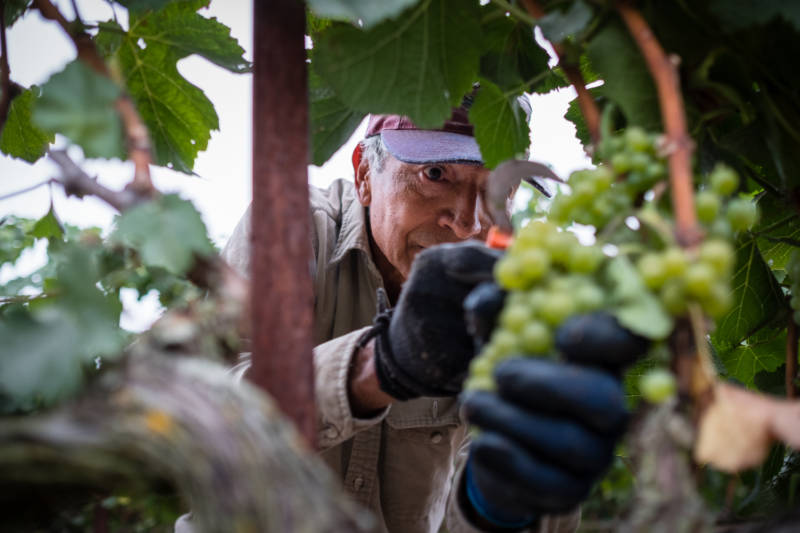For generations, Mexican-born Gustavo Brambila's family has worked in the wine industry of California's Napa Valley in some form.
He went to college on a baseball scholarship but the passion of flowery aromas and crisp peach flavor remained in his soul and he eventually got a degree in fermentation sciences.
His dream: His own vineyard.
Brambila's story and others are the focus of "Harvest Season," a new PBS documentary examining the contributions of Mexican Americans in the wine industry of California's Napa Valley.
The film, scheduled to begin airing Monday on most PBS stations as part of the Independent Lens series, shows how the Mexican Americans have shaped the industry as farmworkers and later vineyard owners in one of the richest wine regions in the world.
Through the eyes of winemaker Gustavo Brambila, Mexican migrant worker Rene Reyes and wine entrepreneur Vanessa Robledo, the documentary shows how the California wine industry's most silent figures battle weather, climate change and wildfires. They speak of their families' deep roots with vineyards and how it shapes their dreams for the future.
Director Bernardo Ruiz said he wanted his project to show that people of Mexican descent have been a part of U.S. history since its founding and winemaker is just one industry where this is evident.
"From the outside, winemaking is very glamorous and it's very romanticized," Ruiz said. "What really drives it is really hard work."

